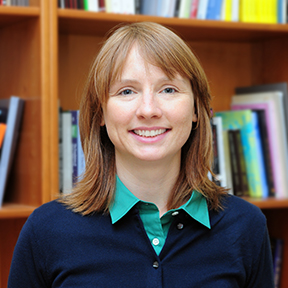A Slavic Linguist in Madrid

“What is a Slavic linguist doing on a postdoctoral fellowship in Spain?”
I have been asked some version of this question far more times than I can remember. Initially the answer wasn’t so clear to me, but after a year and a half in Spain I know why I’m here.
In May 2011 I filed my dissertation in Slavic Linguistics at Berkeley. Later that same year I became the first IE-UC Berkeley Postdoctoral Teaching Fellow of the Humanities. I teach at IE University, which is a private English-language university in Segovia, Spain, affiliated with the top-ranked European business school IE (Instituto de Empresa) of Madrid. While relatively few in the U.S. have heard of IE, it is well known and well respected in Europe, Latin America, and many other regions of the world. In many respects, IE University could not be any more different from Berkeley. It opened only four years ago and is still building up its course and program offerings, as well as its student body, which is currently around 500 students. A humanities course is required of all first-year students. This is where I come in.
Developed in 2010 by the Townsend Center and IE, the postdoctoral fellowship in the humanities was designed to bring newly minted Ph.D.’s from Berkeley to teach in Segovia, especially in subject areas that are not represented among the current degree and course offerings at the university. I have developed language and linguistic-themed courses, which have included readings by Saussure, Sapir, Whorf, Bourdieu, and others. Students find Bourdieuian concepts especially compelling, particularly when films and television shows are used to understand habitus and cultural capital, e.g., between Eliza Doolittle and Henry Higgins in My Fair Lady.
Teaching at IE is far more challenging than teaching at Berkeley. While the student body at IE is quite diverse, with students from Spain, France, Germany, India, Uganda, Hong Kong, etc., most are at IE to study business and there are no majors in linguistics or languages. For many students, Humanities is the only course with a significant critical reading and writing component in their undergraduate career. In the face of this new classroom environment, I developed a stronger pedagogical presence and devised a variety of different teaching and classroom management strategies compatible with both the students’ needs and my abilities. This allowed me to embrace the challenges and the opportunities that the position presented: working with a small and diverse faculty, collaborating closely with my supervisor and other professors to shape the direction of the program, and drawing on the talents and insights of dozens of linguistically and culturally diverse students as a learning tool in every single class session.
What about my research in Slavic linguistics? I cannot deny that living in Madrid has presented difficulties for some aspects of my research, including access to library resources. However, I have also forged connections with colleagues I never would have expected to work with, including collaboration on an international grant proposal for a European Commission project investigating multilingualism in Europe. The professor coordinating the bid contacted me and invited me to join the collaboration precisely because of my specialization in linguistics and Slavic, which she learned about from my profile on the IE website. This has allowed me to expand my research profile into a new context, increasing the exposure of Slavic and Russian among a broader community of language and linguistics scholars.
But there’s more to life than work, especially in Madrid. It’s no secret that Madrid is a lively and exciting city: the tapas, the cañas (little beers), the nightlife, and the language. As a linguist, I can think of no greater adventure than immersing oneself in a new linguistic environment. It’s true that much of my work life, especially teaching, is in English, but my social life has increasingly shifted to Spanish. I have also battled bureaucracy, a tough rental market, and plumbers in Spanish—all of which pushed my knowledge of the language to its limits (and beyond!). But Spaniards are overwhelming open and friendly, which has made my linguistic blunders and faux pas more entertaining than embarrassing, such as the proclamation I made on Halloween in my she-devil costume that I was carrying a ‘large fork’ (tenedor grande) instead of a ‘pitchfork’ (tridente), much to the amusement of my Spanish friends.
So, what is a Slavic linguist doing on a postdoctoral fellowship in Spain? In short, I’m expanding my teaching and research repertoire, as well as my knowledge of another culture and language. I believe that it’s a boon for a regional specialist to have intimate knowledge of another world region in order to view one’s specialization from a different context, culture, and educational system, as well as broaden the scope of one’s professional and private lives.
The IE-UC Berkeley International Postdoctoral Teaching Fellowship provides the opportunity to teach in Spain at IE University in Segovia, Spain as a fellow of the School of Arts and Humanities. The fellow will also be affiliated with the Townsend Center for the Humanities at UC Berkeley. The fellowship offers the opportunity to develop and implement innovative curricula in one of Europe’s foremost professional degree-granting institutions while also providing time for research and career development.
Applications for the 2013-2014 fellowship are due Friday, February 1. Review fellowship details and and application guidelines here.